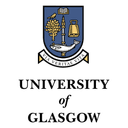PhD Studentship: Tracking Flying Insects: Developing Novel Technology to Explore the Lives of Bees
As part of an interdisciplinary team you will develop a new method to track flying insects which will revolutionise movement ecology and help reverse pollinator decline. We will use our method to explore bumblebee behaviour, navigation and landscape-use to better understand insect cognition. The overall grant covers microbattery development; antenna design; field experiments and cognitive modelling. You will focus on machine learning, but will be involved in all areas. There are also spinout opportunities. For details: PhD information sheet
The team have wide experience studying bumblebee behaviour close to the nest [1] but to better understand foraging, we need landscape level detail. The direction of the project can be tailored, but could include developing and applying Bayesian ML approaches for path inference; introducing sensors; behaviour classification; resource-constrained active-learning; other IoT applications; microbattery development and field experiments and flight path analysis.
Supervisor Bio
I’ve been working in the field of Bayesian ML for 10+ years, with a focus on real-world applications and have developed several insect tracking techniques. As well as an opportunity to conduct interdisciplinary research (with collaborators at Exeter, Sussex, etc), you will gain experience and skills in highly sought after fields such as probabilistic ML and AI.
About the School/Research Group
The School of Computer Science, and the machine learning group in particular, conduct world-leading research across a wide range of disciplines. Sheffield University is home to the Centre for Machine Intelligence (which includes the Bioscience and AI SIG). With regular journal clubs, talks by visiting speakers, and a very large faculty, the school is a vibrant place to undertake research.
Candidate Requirements
Minimum 2:1 undergraduate (BSc/BEng) and/or postgraduate masters’ qualification (MSc/MEng) in a STEM subject, by the start of the PhD. A candidate must: Comfortable with basic engineering/STEM undergraduate maths. Be willing to take part in field work. Have programming experience. If English is not your first language, you must have an IELTS score of 6.5 overall, with no less than 6.0 in each component.
How to Apply
Please contact Mike Smith if you are interested in applying: m.t.smith@sheffield.ac.uk To apply for a PhD studentship, applications must be made directly to the University of Sheffield using the Postgraduate Online Application Form. Make sure you name Mike Smith as your proposed supervisor. Information on what documents are required and a link to the application form can be found here - https://www.sheffield.ac.uk/postgraduate/phd/apply/applying Please submit a 1 page research statement that outlines your reasons for applying for this studentship, explain how you would approach the research, including details of your skills and experience in the topic area.
Funding Notes
This PhD studentship will cover standard UK home tuition fees and provide a tax-free stipend (£20,780 for 2025/26 academic year) for 3.5 years. If you are an overseas student, you are eligible to apply but you must have the means to pay the difference between the UK and overseas tuition fees. Further information on international fees can be found here: https://sheffield.ac.uk/new-students/tuition-fees/fees-lookup
Whoops! This job is not yet sponsored…
Or, view more options below
View full job details
See the complete job description, requirements, and application process
Express interest in this position
Let University of Sheffield know you're interested in PhD Studentship: Tracking Flying Insects: Developing Novel Technology to Explore the Lives of Bees
Get similar job alerts
Receive notifications when similar positions become available






